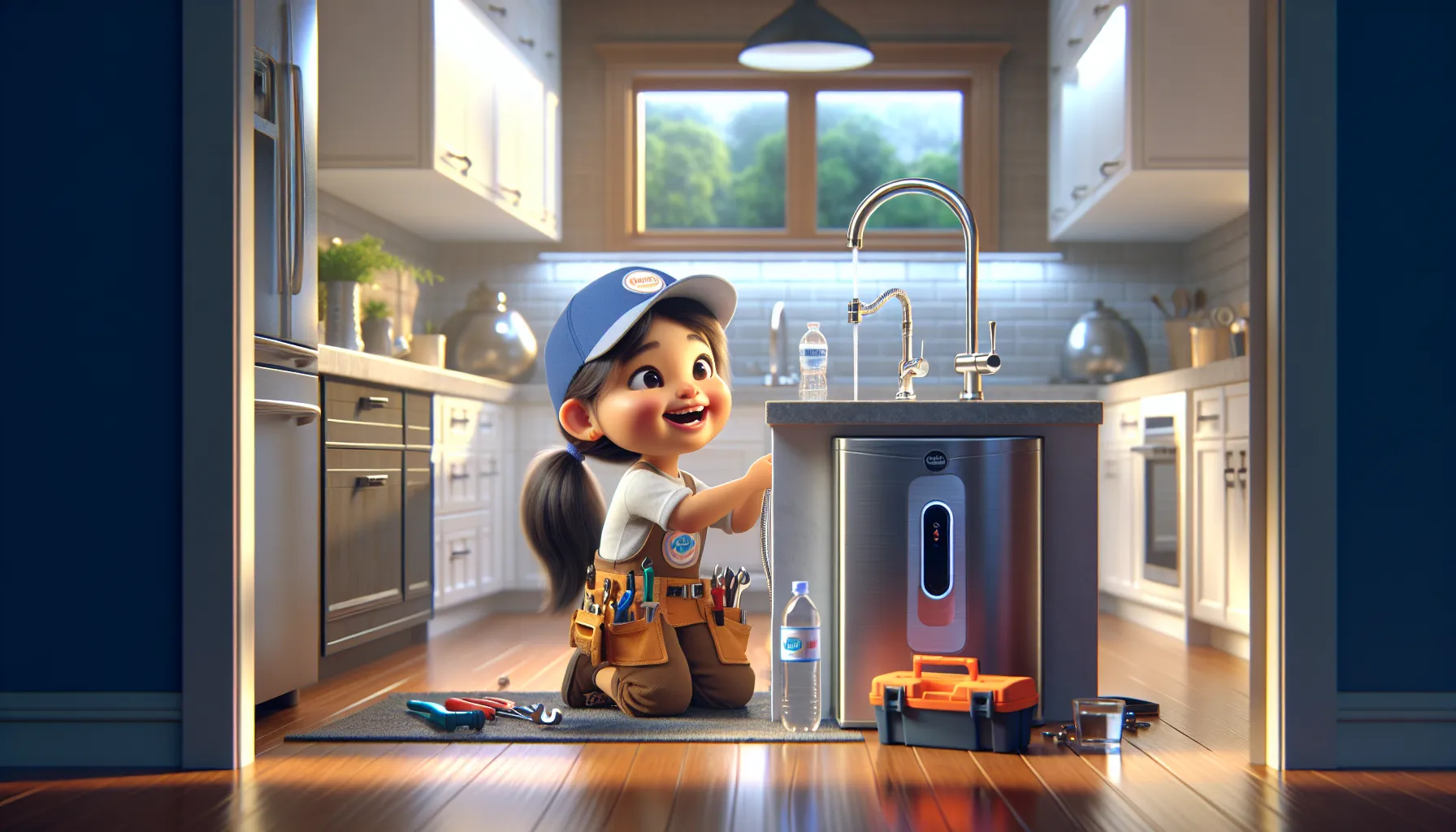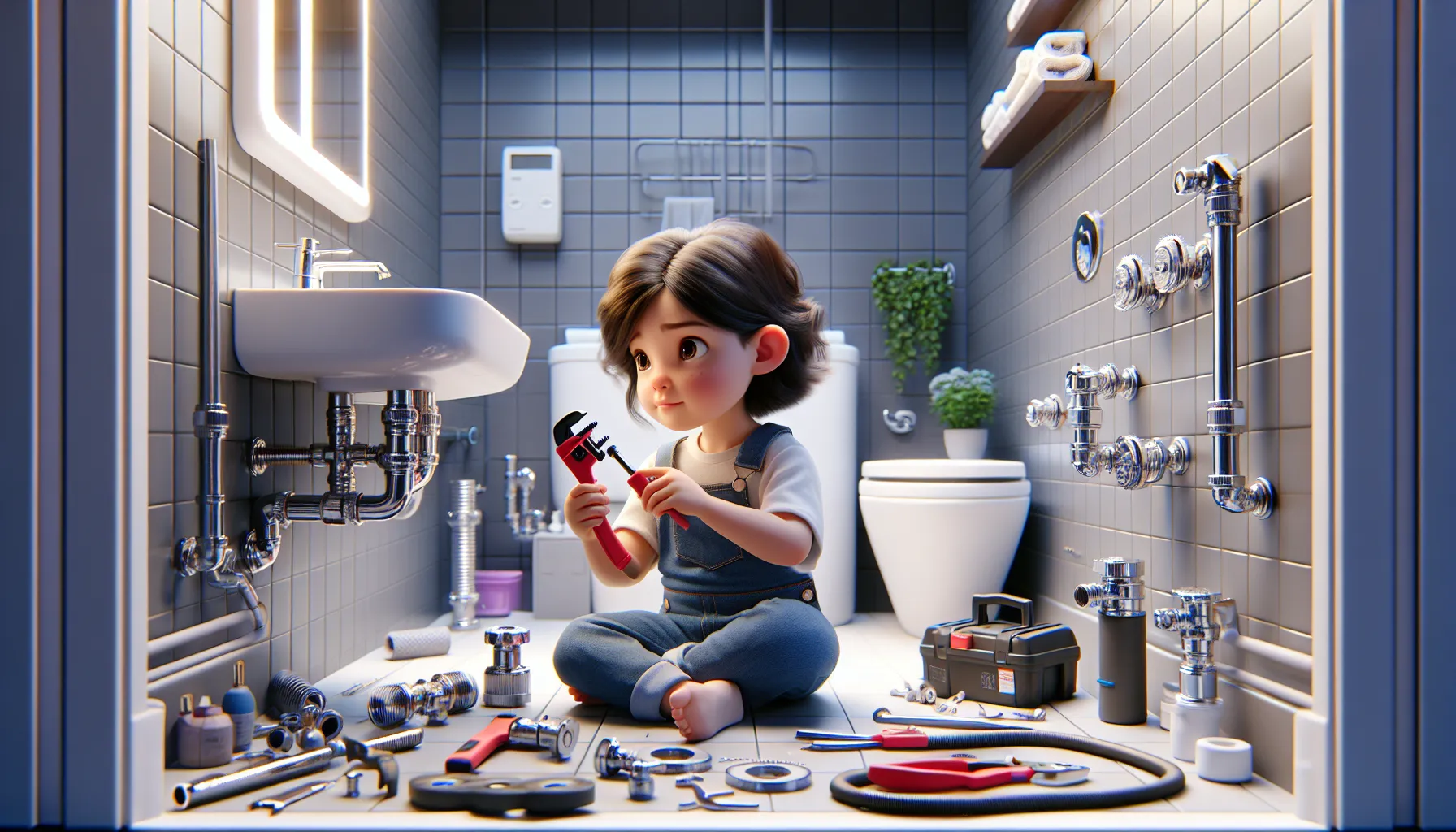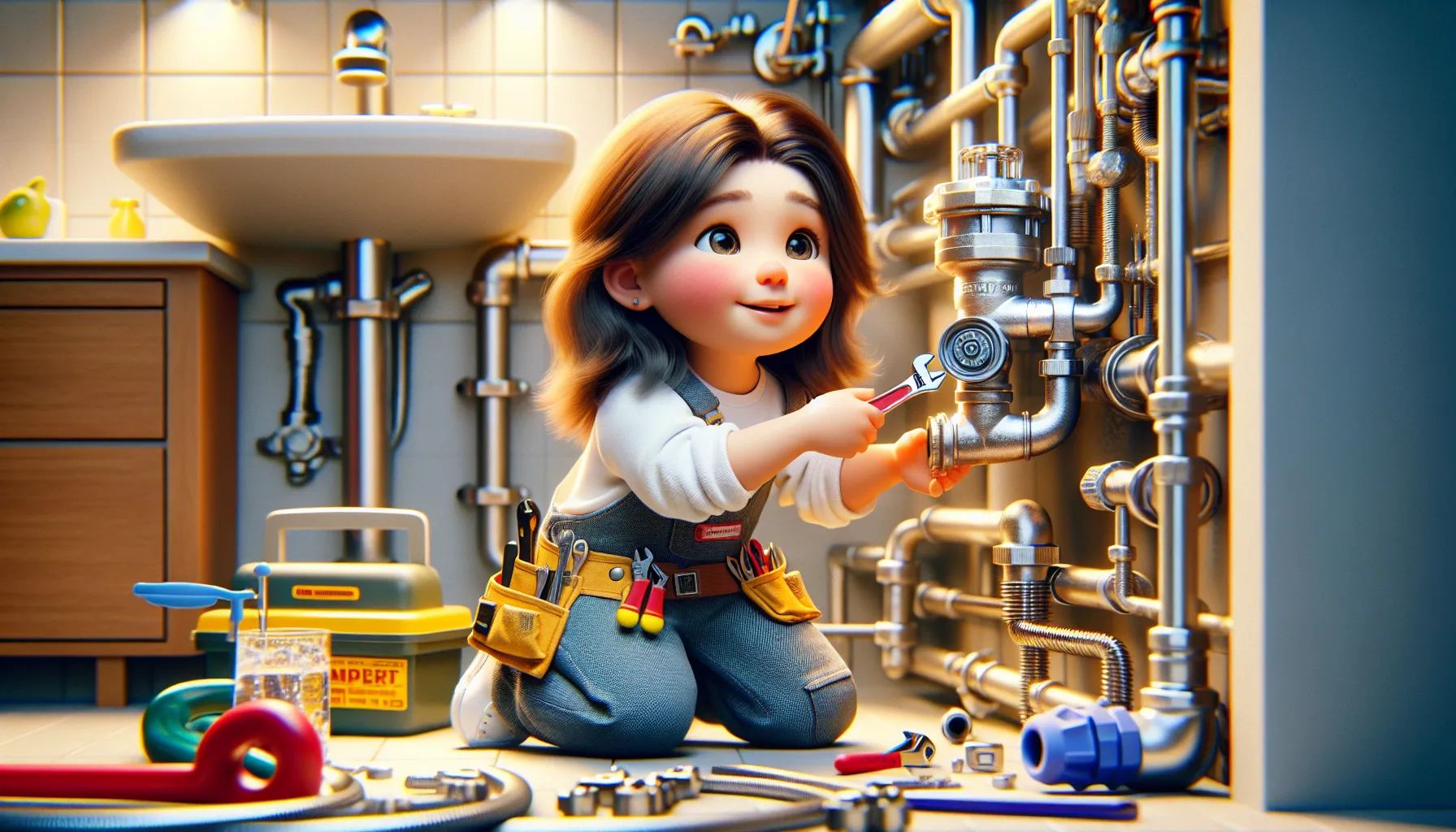Over time, hard water can wreak havoc on your home’s plumbing, appliances, and even your skin and hair. If you’re experiencing issues like limescale buildup, soap scum in your shower, or dry, itchy skin, it may be time to consider investing in a water softener. A water softener is a device that helps remove minerals like calcium and magnesium that cause hardness in water, making it gentler and more beneficial for everyday use.
By installing a water softener in your home, you can extend the life of your pipes and appliances, reduce the amount of soap and detergent needed for cleaning, and even improve the overall quality of your water. With so many benefits to offer, a water softener is a wise investment for any homeowner looking to improve their water quality and protect their home from the damaging effects of hard water.
Key Takeaways:
- Hard water can damage your plumbing: A water softener can prevent mineral buildup in your pipes and appliances, extending their lifespan.
- Improves the efficiency of water-using appliances: Soft water can help your appliances like washing machines and dishwashers work more efficiently and last longer.
- Reduces soap scum and limescale: With a water softener, you can say goodbye to soap scum buildup on your dishes, showers, and faucets.
- Helps with skin and hair health: Soft water can be gentler on your skin and hair, reducing dryness and irritation caused by hard water minerals.
- Saves you money in the long run: Investing in a water softener can lead to lower energy and maintenance costs for your home over time.
Understanding Water Hardness
What is Hard Water?
To understand water hardness, we need to look at the mineral content of the water. Hard water is water that has high levels of calcium and magnesium ions. These minerals are picked up as water passes through rock formations and soil. The higher the concentration of these minerals, the harder the water.
Measuring Water Hardness
On a practical level, water hardness is typically measured in grains per gallon (GPG) or milligrams per liter (mg/L). These measurements help determine the level of minerals in the water and classify it as soft, moderately hard, hard, or very hard. Testing the water hardness is imperative to determine if a water softener is needed for your home.
Measuring water hardness is crucial because it can impact various aspects of your daily life. Hard water can lead to limescale buildup in pipes and appliances, reducing their efficiency and lifespan. It can also cause soap scum to form, making it harder to get clothes and dishes clean. Additionally, hard water can leave mineral deposits on surfaces, creating a dull appearance on glassware and shower doors.
The Science of Water Softening
How Water Softeners Work
Science: Not all water is created equal. Hard water contains high levels of minerals like calcium and magnesium which can cause limescale buildup in pipes, appliances, and fixtures. Water softeners are designed to remove these minerals, making your water softer and less damaging to your home.
Types of Water Softeners: There are two main types of water softeners: salt-based and salt-free. Salt-based water softeners use ion exchange to remove minerals from the water, while salt-free systems use a process called template-assisted crystallization. Assume that the type of water softener you choose will depend on your water hardness level and personal preferences.
| Salt-Based Water Softeners | Salt-Free Water Softeners |
| Uses ion exchange to remove minerals | Utilizes template-assisted crystallization |
| Higher maintenance due to salt refills | Lowers maintenance costs |
| Effective for very hard water | Suitable for moderately hard water |
| Requires more water for regeneration | Environmentally friendly |
| Higher upfront costs | Lower operating costs |
Components of a Water Softening System
Electronic: Another important component of a water softening system is the control valve, which regulates the flow of water and the regeneration process. The brine tank holds the salt or potassium needed for the ion exchange process, while the resin tank contains the resin beads that attract and remove the minerals from the water.
Softening: It is crucial to regularly monitor and maintain all components of your water softening system to ensure optimal performance. The resin beads may need to be replaced periodically, and the salt levels in the brine tank should be checked regularly to prevent damage to the system.
Benefits of a Water Softener
Protecting Plumbing and Appliances
Appliances such as washing machines, dishwashers, and water heaters can suffer from the negative effects of hard water over time. The minerals present in hard water can lead to a buildup of limescale, which can reduce the efficiency and lifespan of these appliances. By installing a water softener, you can prevent this limescale buildup, protecting your plumbing and appliances from costly repairs or replacements.
Enhanced Cleaning and Laundry
On top of protecting your appliances, softened water offers improved cleaning performance. Soft water allows detergents to lather more effectively, leading to cleaner dishes, softer clothes, and shinier surfaces. Say goodbye to soap scum on your dishes and clothes, and enjoy the benefits of sparkling clean items throughout your home.
Understanding the benefits of soft water on your cleaning routine can lead to a significant improvement in your household tasks. From cleaner showers and sinks to softer skin and hair, the advantages of using softened water for cleaning and laundry are undeniable.
Health and Skin Benefits
Plumbing systems free from the harsh effects of hard water can bring health benefits for you and your family. Hard water can irritate the skin and exacerbate skin conditions such as eczema. By using a water softener, you can reduce the presence of minerals that can dry out your skin, leaving it feeling softer and smoother after showers and baths.
Benefits of softened water go beyond just skin health. By eliminating harsh minerals in the water, you can also enjoy healthier hair and nails. Your overall well-being can greatly benefit from the switch to softened water for your daily routines.
Long-Term Financial Savings
Cleaning with softened water not only offers superior results but can also lead to long-term financial savings. Soft water requires less detergent and cleaning products to achieve the same level of cleanliness, reducing the frequency of purchasing these items. Additionally, the extended lifespan of your plumbing and appliances means you’ll save money on repairs and replacements in the long run.
Plus, with the energy efficiency that comes from using softened water in your appliances, such as water heaters and washing machines, you can lower your energy bills and reduce your carbon footprint simultaneously.
Installation and Maintenance
Choosing the Right Water Softener
To ensure that your water softener works efficiently, it is crucial to choose the right one for your home. Consider factors such as the hardness of your water, the size of your household, and your budget when selecting a water softener. Research different types of water softeners, such as salt-based and salt-free options, to determine which one best suits your needs.
The Installation Process
Softener
A professional installation is highly recommended to ensure that your water softener is set up correctly. During the installation process, the water softener will be connected to your home’s water supply system. Additionally, a drainage line will be needed for the brine tank. It is important to place the water softener in a convenient location with access to power and a drain.
With routine maintenance, a water softener can efficiently remove minerals from your water and prolong the lifespan of your appliances and plumbing fixtures. It is recommended to regularly check the salt levels in the brine tank and refill it as needed. Additionally, some water softeners may require periodic cleaning or calibration to ensure optimal performance.
Environmental Considerations
The Ecological Impact of Water Softeners
Unlike untreated hard water, which can cause damage to your plumbing, appliances, and leave residue on dishes and clothing, water softeners can mitigate these issues by removing minerals like calcium and magnesium. However, concerns have been raised about the ecological impact of water softeners. The salt used in the softening process can end up in the environment, affecting soil quality and aquatic life in water bodies where the brine discharge is released.
Eco-Friendly Water Softening Options
Options for eco-friendly water softening include alternatives to traditional salt-based systems. One such option is using potassium chloride instead of sodium chloride to regenerate the resin beads in the softener. This alternative reduces the amount of sodium released into the environment. Another eco-friendly option is a template-assisted crystallization (TAC) system, which changes the structure of the minerals in water, preventing them from depositing and causing hardness issues. These options are designed to provide the benefits of soft water while minimizing the environmental impact.
Impact: While traditional water softeners can have a negative impact on the environment due to the salt discharge, eco-friendly alternatives offer a more sustainable choice. By opting for eco-friendly water softening options, you can reduce the amount of salt entering the ecosystem and minimize potential harm to soil and aquatic life. Making an informed decision about the type of water softener you choose can help protect both your home and the environment.
Navigating Myths and Facts
Your home’s water quality can greatly impact your daily life, which is why considering a water softener is important. However, there are many myths surrounding water softeners that can lead to confusion. Let’s debunk some common misconceptions.
Common Myths about Water Softeners
Softeners Some believe that water softeners make water taste salty or leave a slimy residue on the skin. In reality, softened water should have neither of these effects when properly installed and maintained. Another widespread myth is that softened water is not safe to drink. This misconception is false; softened water is perfectly safe for consumption.
Separating Fact from Fiction
Myths It’s crucial to separate fact from fiction when it comes to water softeners. One common myth is that salt-based softeners are the only option. The truth is there are salt-free alternatives available, making it possible to enjoy the benefits of soft water without the added sodium. Plus, some fear that soft water may lead to corrosion in pipes and fixtures. This is not true; in fact, soft water can help extend the longevity of your plumbing system by preventing limescale buildup.
Summing up
As a reminder, investing in a water softener for your home can bring numerous benefits, such as extending the lifespan of your appliances, improving the quality of your water for drinking and bathing, and saving you money on energy bills and maintenance costs. By effectively removing minerals like calcium and magnesium from your water, a water softener can also help protect your plumbing system and reduce soap scum buildup in your sinks and showers.
In the final consideration, considering a water softener for your home is a wise decision that can lead to a healthier and more efficient household. With the long-term benefits of improved water quality, reduced maintenance expenses, and increased appliance longevity, a water softener can make a significant difference in your daily life and overall well-being.
FAQ
Q: What is a water softener and why should I consider installing one in my home?
A: A water softener is a device that removes minerals such as calcium and magnesium from hard water through a process called ion exchange. Installing a water softener in your home can provide numerous benefits, including preventing scale buildup in pipes and appliances, improving the effectiveness of soaps and detergents, and extending the lifespan of water-using appliances.
Q: How does hard water affect my household appliances and plumbing?
A: Hard water contains high levels of minerals that can lead to scale buildup in pipes, faucets, and appliances. This scale can reduce water flow, decrease energy efficiency, and ultimately shorten the lifespan of appliances such as water heaters, dishwashers, and washing machines.
Q: Will a water softener save me money in the long run?
A: Yes, installing a water softener can save you money in the long run. By preventing scale buildup in your plumbing and appliances, a water softener can help them operate more efficiently and last longer. This can lead to lower energy bills, reduced repair and maintenance costs, and longer replacement intervals for appliances.
Q: How can a water softener improve the quality of my water for bathing and cleaning?
A: A water softener can improve the quality of your water for bathing and cleaning by removing minerals that can make water hard. Soft water creates a richer lather with soaps and shampoos, leaving you with softer skin and hair. It also reduces soap scum buildup on tubs, sinks, and shower doors, making cleaning easier and more effective.
Q: Are there any environmental benefits to using a water softener?
A: Yes, there are environmental benefits to using a water softener. By reducing scale buildup in appliances, a water softener can help them operate more efficiently, which can lead to lower energy consumption and reduced greenhouse gas emissions. Additionally, by extending the lifespan of appliances, a water softener can help reduce waste and the environmental impact of manufacturing and disposing of new appliances.



